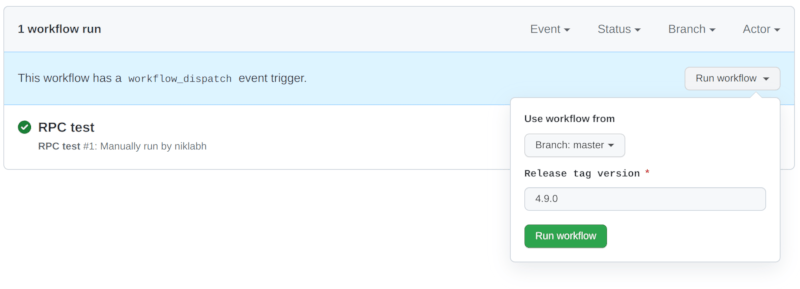2 个不稳定版本
| 0.3.0 | 2021年6月10日 |
|---|---|
| 0.1.0 | 2020年8月1日 |
#2890 在 魔法豆
在 2 crates 中使用
160KB
4K SLoC

Astar 网络是基于 Substrate 框架的互操作区块链,是 Polkadot 生态系统内 dApps 的枢纽。通过 Astar 网络和 Shiden 网络,人们可以将代币质押到智能合约中,以奖励为网络提供价值的项目。
为了贡献此项目,请阅读我们的 贡献指南。
从源代码构建
本节假设开发者正在运行 macOS 或 Debian 变体操作系统。对于 Windows,尽管有运行的方法,但我们建议使用 WSL 或虚拟机以获得稳定性。
从终端执行以下命令以设置开发环境和构建节点运行时。
# install Substrate development environment via the automatic script
$ curl https://getsubstrate.io -sSf | bash -s -- --fast
# clone the Git repository
$ git clone --recurse-submodules https://github.com/AstarNetwork/Astar.git
# change current working directory
$ cd Astar
# compile the node
# note: you may encounter some errors if `wasm32-unknown-unknown` is not installed, or if the toolchain channel is outdated
$ cargo build --release
# show list of available commands
$ ./target/release/astar-collator --help
使用 Nix 构建
# install Nix package manager:
$ curl https://nixos.org/nix/install | sh
# run from root of the project folder (`Astar/` folder)
$ nix-shell -I nixpkgs=channel:nixos-21.05 third-party/nix/shell.nix --run "cargo build --release"
运行 Collator 节点
要设置 Collator 节点,您必须有一个完全同步的节点和适当的参数,这可以通过以下命令完成。
# start the Shiden collator node with
$ ./target/release/astar-collator \
--base-path <path to save blocks> \
--name <node display name> \
--port 30333 \
--rpc-port 9944 \
--telemetry-url 'wss://telemetry.polkadot.io/submit/ 0' \
--rpc-cors all \
--collator
现在,您可以通过发送以下 RPC 有效载荷来获取节点的会话密钥。
# send `rotate_keys` request
$ curl -H 'Content-Type: application/json' --data '{ "jsonrpc":"2.0", "method":"author_rotateKeys", "id":1 }' localhost:9933
# should return a long string of hex, which is your session key
{"jsonrpc":"2.0","result":"<session key in hex>","id":1}
完成此步骤后,您应该有一个具有节点会话密钥的在线验证节点。有关密钥管理和验证者奖励,请参阅我们的 在线验证者指南。
运行 RPC 测试
RPC 测试套件可以在任何版本上运行。要运行测试,请访问 https://github.com/AstarNetwork/Astar/actions/workflows/rpcTest.yml。点击“运行工作流程”,在下拉菜单中输入您想要运行测试套件的发布版本标签。然后点击绿色的“运行工作流程”按钮以启动测试套件。

工作空间依赖处理
所有依赖项都应该列在工作空间根目录下的 Cargo.toml 文件中。这样,我们就可以通过修改单个位置来轻松地更改整个仓库中使用的 crate 的版本。
目前,如果需要 non_std,则必须在根 Cargo.toml 文件中设置 default-features = false(与此 问题 相关)。否则,它将没有任何效果,导致您的编译失败。此外,package 导入并未正确地从根传播到子 crate,因此应避免定义这些。
在根 Cargo.toml 中定义 features 与具体 crate 的 Cargo.toml 中定义的 features 是累加的。
添加依赖项
- 检查依赖项是否已在根
Cargo.toml中定义- 如果 是,则无需操作,只需注意已启用的功能
- 如果 否,则添加它(如果依赖项在 no_std 上下文中使用,请确保使用
default-features = false)
- 将
new_dependecy = { workspace = true }添加到所需的 crate - 如果依赖项已使用
default-features = false定义,但您需要在 std 上下文中使用它,则将features = ["std"]添加到所需的 crate。
进一步阅读
依赖项
~5MB
~102K SLoC